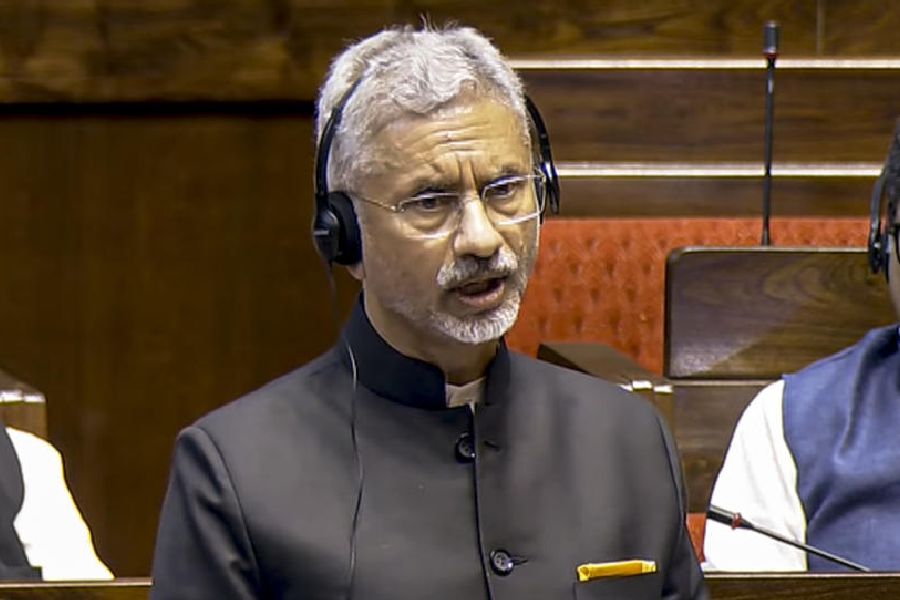External affairs minister S. Jaishankar on Thursday declined to provide a direct answer on whether India has been exporting arms and ammunition to Israel, stating that the country's decisions on exports are guided by national interest.
Jaishankar was responding to questions during Question Hour in the Rajya Sabha on the ongoing conflict in Gaza. He iterated that the government’s decision-making process on the export of military materials to any nation is determined by India’s broader national interests.
The minister also defended India’s decision to abstain from a resolution brought by the United Nations General Assembly (UNGA) calling for a humanitarian truce between Israeli forces and Hamas militants.
In response to CPI MP P.P. Suneer’s enquiry about the specifics of India’s arms exports to Israel since the start of the conflict, including weapons, Jaishankar noted that information related to military exports is not available in the public domain.
"With regard to our exports to Israel, in particular any export which is related directly or indirectly to munitions or military sense, that is not information that is in public domain,” Jaishankar said.
CPM member John Brittas repeated the question and asked the minister to confirm if Palestine's minister of state in the foreign office had met India’s ambassador Renu Yadav with the request to reconsider arms sales to Israel because of their use against Palestine civilians.
"The issue of India’s exports, including India’s exports of anything which directly or indirectly has any military implications, is guided by our national interest and by our commitments to various regimes. So, we are very responsible members of various international regimes, including the Wassenaar arrangement. We have an export control and licensing process. And we take decisions regarding any export which is based on what we consider to be our national interest,” the minister said.
"Israel is a country in which we have a strong record of cooperation in national security. It is also a country that has stood by us at different moments when our national security was under threat. So, when we take any decision we will bear in mind, obviously, the larger circumstances but we will definitely be driven by our national interest in this matter,” he said.
DMK member Tiruchi Siva wanted to know the reasons for India abstaining from a resolution at the UNGA about the protection of civilians and upholding humanitarian obligations while extending humanitarian assistance to the people of Palestine both bilaterally and through the UN Relief and Work Agency (UNRWA).
Jaishankar said the resolution was not well drafted and did not accommodate India’s concerns. He said there had been several resolutions in the General Assembly and India had voted in favour of many while abstaining from some.
“Generally when we abstain, the reasons are resolutions are not balanced, the resolution is more divisive, the resolution can set a precedent which has consequences for us and the resolution has larger implications. In this particular case, we felt that the resolution was not well drafted. We had reservations about the language. Our concerns were not accommodated, that is why we abstained," he said.
Trinamool Congress member Saket Gokhale asked about India’s stand on the two-state policy and the reasons for abstaining from the resolution against Israeli settlements in the West Bank.
Jaishankar said India supports the two-state solution.
“Regarding the resolution, the implication of the resolution and their wording is important. The resolution the previous member (Tiruchi Siva) had referred to, there was no reference to terrorism. There was no reference to hostage-taking. A resolution which does not reflect the entirety of the situation is not a balanced resolution. A country like India which itself is a victim of terrorism, we countenance the fact that terrorism is underplayed and ignored, it is not in our interest that we do so,” Jaishankar said.











